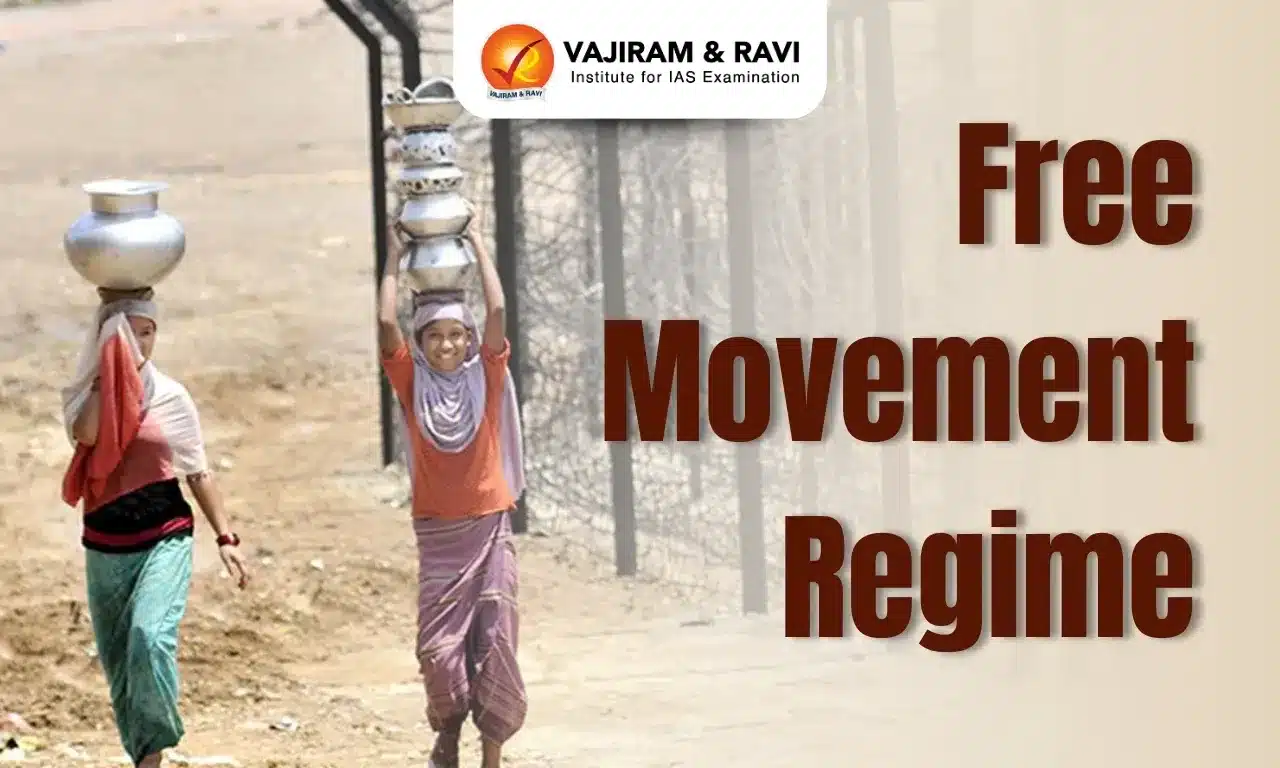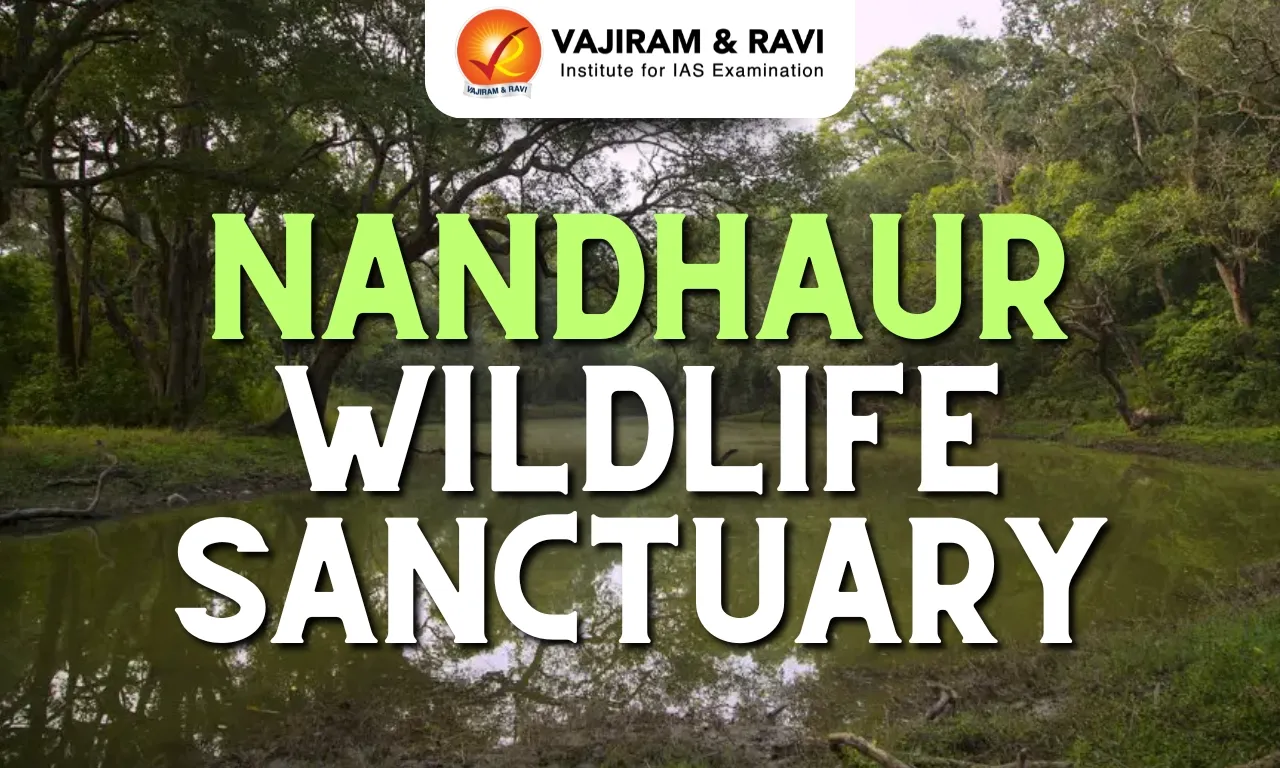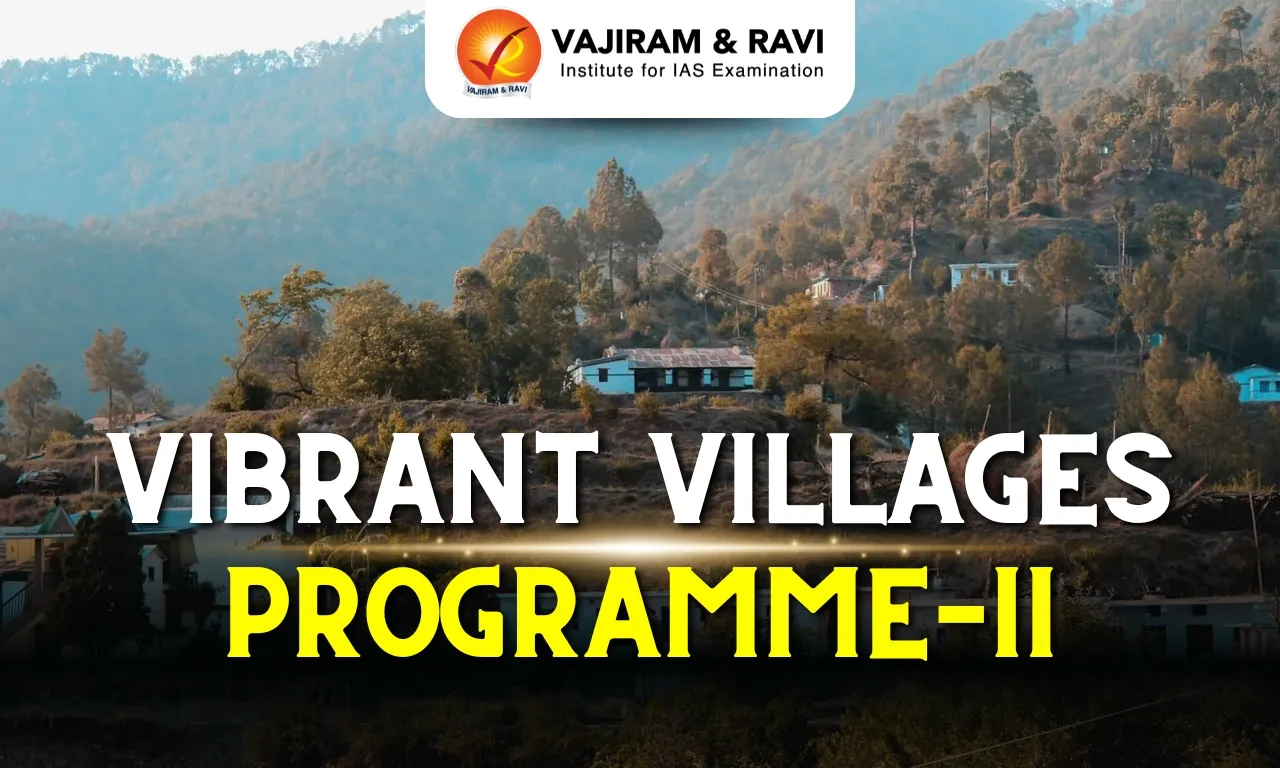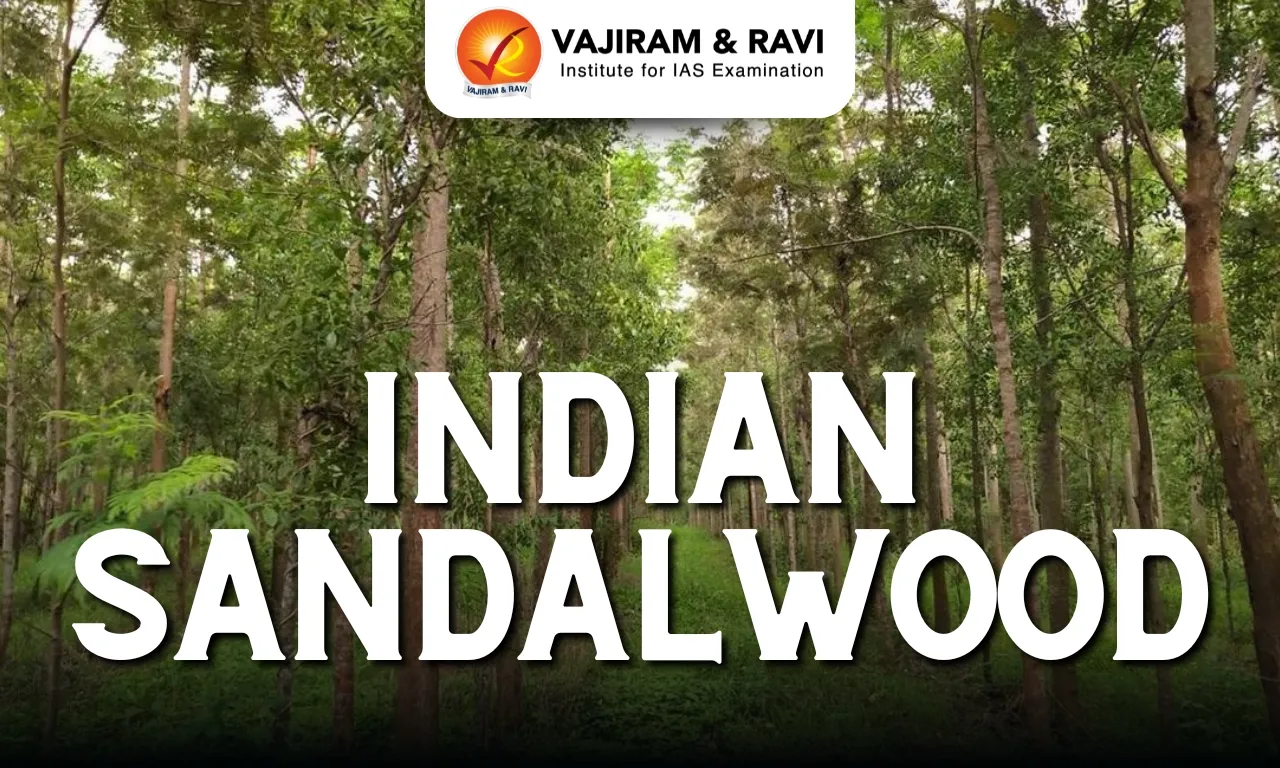Free Movement Regime Latest News
Should the free movement regime between India and Myanmar remain?
Why in the News?
- In February 2024, Union Home Minister Amit Shah announced that the Free Movement Regime (FMR) along the India-Myanmar border would be scrapped.
- The decision was reportedly influenced by former Manipur CM N. Biren Singh, who blamed unregulated cross-border movement for fueling ethnic conflict in Manipur.
- However, Mizoram and Nagaland opposed the decision, and no official notification or bilateral agreement has been made yet.
- The FMR was introduced in 1968 and initially allowed movement up to 40 km, later reduced to 16 km in 2004, with additional regulations enforced in 2016.
About Free Movement Regime (FMR)
- The FMR is a bilateral arrangement between India and Myanmar that permits unrestricted movement within 16 km on either side of the 1,643 km Indo-Myanmar border (IMB).
- Eligibility: Any member of the hill tribes (whether an Indian or Myanmar citizen) can cross the border with a border pass valid for one year and stay for up to two weeks per visit.
- Objective:
- To maintain historical, cultural, and social ties between the trans-border communities.
- To boost local trade and facilitate familial visits.
- To serve as a unique case of cross-border cooperation under India’s Act East Policy.
- Implementation:
- Introduced formally in 2018, although movement existed informally for centuries.
- Inspired by India’s Act East Policy, which aims to strengthen ties with Southeast Asian nations.
Free Movement Regime FAQs
Q1. What is the Free Movement Regime (FMR)?
Ans. FMR is an agreement between India and Myanmar that allows border residents to travel visa-free within a specified range for social and economic interactions.
Q2. What is the distance limit for movement under FMR?
Ans. Indian and Myanmar residents living within 16 km of the border can cross freely with a border pass for up to two weeks.
Q3. Why is the FMR important for India-Myanmar relations?
Ans. FMR facilitates people-to-people connectivity, trade, and cultural exchanges while addressing security concerns like insurgency and illegal activities.
Q4. Which Indian states benefit from the FMR?
Ans: The FMR applies to Arunachal Pradesh, Nagaland, Manipur, and Mizoram, which share a border with Myanmar.
Source: TH
Last updated on February, 2026
→ UPSC Notification 2026 is now out on the official website at upsconline.nic.in.
→ UPSC IFoS Notification 2026 is now out on the official website at upsconline.nic.in.
→ UPSC Calendar 2026 has been released.
→ UPSC Final Result 2025 is expected to be released in the second week of April 2026.
→ Check out the latest UPSC Syllabus 2026 here.
→ Join Vajiram & Ravi’s Interview Guidance Programme for expert help to crack your final UPSC stage.
→ UPSC Mains Result 2025 is now out.
→ UPSC Prelims 2026 will be conducted on 24th May, 2026 & UPSC Mains 2026 will be conducted on 21st August 2026.
→ The UPSC Selection Process is of 3 stages-Prelims, Mains and Interview.
→ Prepare effectively with Vajiram & Ravi’s UPSC Prelims Test Series 2026 featuring full-length mock tests, detailed solutions, and performance analysis.
→ Enroll in Vajiram & Ravi’s UPSC Mains Test Series 2026 for structured answer writing practice, expert evaluation, and exam-oriented feedback.
→ Join Vajiram & Ravi’s Best UPSC Mentorship Program for personalized guidance, strategy planning, and one-to-one support from experienced mentors.
→ Check UPSC Marksheet 2024 Here.
→ UPSC Toppers List 2024 is released now. Shakti Dubey is UPSC AIR 1 2024 Topper.
→ Also check Best UPSC Coaching in India




















